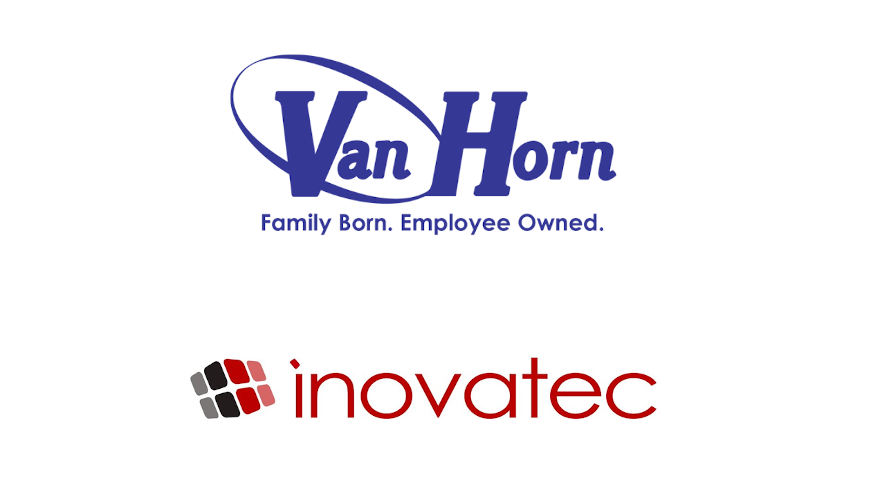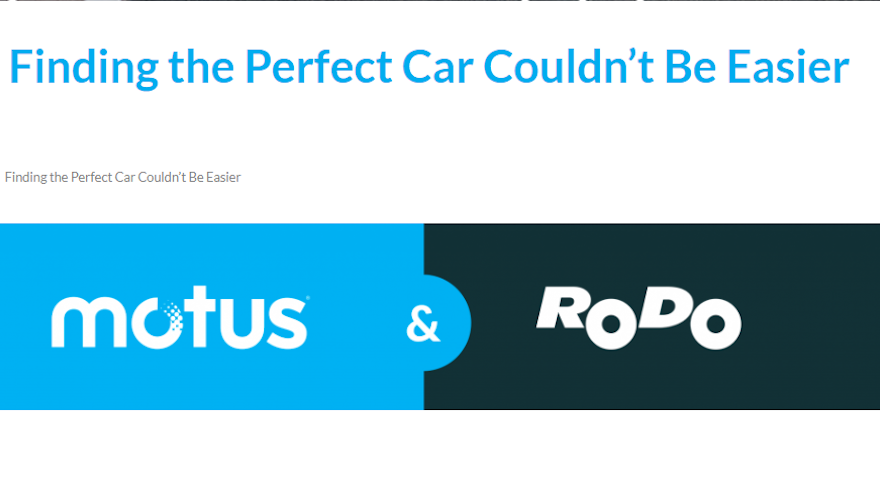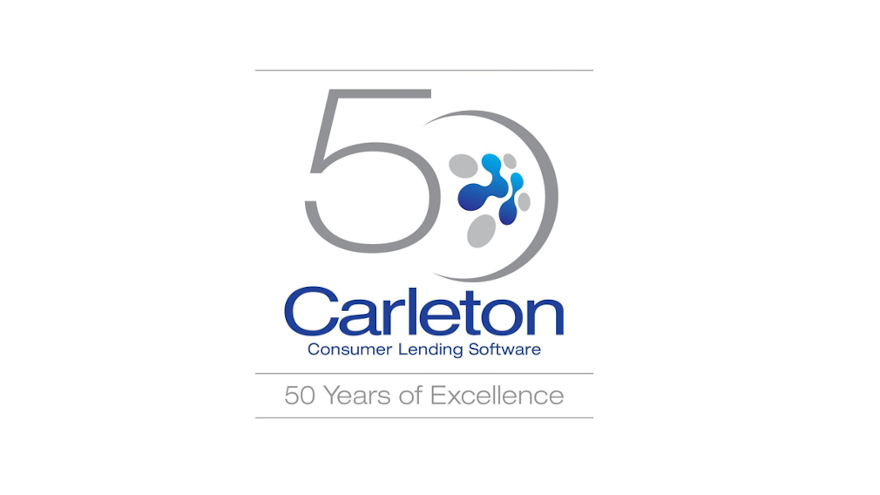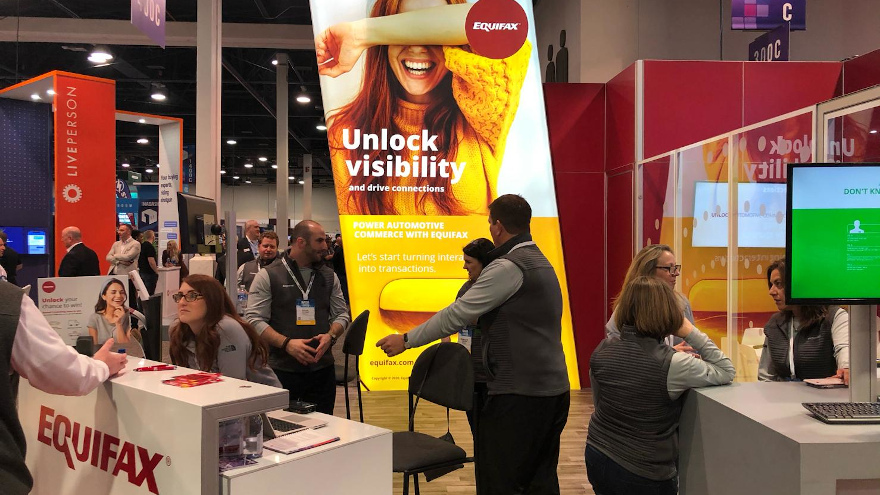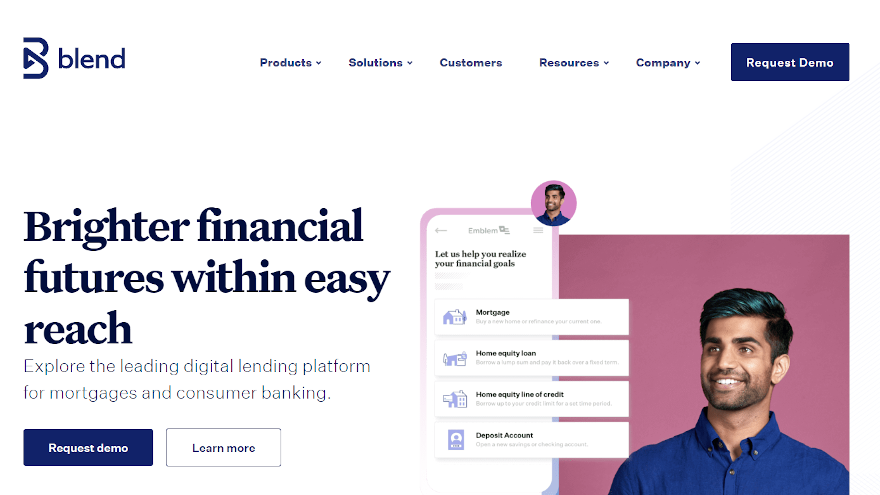A Midwest franchised dealer group with its own finance company finalized a partnership with Inovatec Systems Corp. on Wednesday.
The provider of cloud-based software solutions for all financial institutions now has a relationship with Wisconsin Consumer Credit, the financial arm of the Van Horn Automotive Group with 16 dealership locations throughout Wisconsin and Iowa.
According to a news release, Wisconsin Consumer Credit will integrate Inovatec’s end-to-end solution into its lending services, rental payments and debt collection systems.
Executives explained Inovatec will partner with Wisconsin Consumer Credit to increase the speed and accuracy of lending decisions for the company’s current automotive and rental payments portal that are accessible through online and mobile phone applications.
Inovatec emphasized that its technology can provide a solution that is scalable and data-driven, allowing for more strategic and confident lending decisions to be made.
“At Wisconsin Consumer Credit we have a strong appetite for growth, and it is critical that we implemented the tools necessary to make that happen,” Wisconsin Consumer Credit vice president of operations Amanda Kroener said.
“We are excited for what the future holds now that the ground-work is completed for a successful loan origination and management system,” Kroener continued.
Inovatec highlighted that its agile process builder will allow Wisconsin Consumer Credit to create processes and workflows that can be seamlessly and almost immediately implemented with minimal training.
“The integration of lending technology and automation is allowing for seamless digital finance options for automotive shoppers,” said Bryan Smith, head of customer growth and strategic partnerships at Inovatec. “By implementing sophisticated systems, the speed of buying and lending process is significantly increased.”
Perhaps accelerated by the coronavirus pandemic, electronic signatures and other fintech developments now are being utilized more frequently in connection with vehicles that end up being scrapped or dissembled for parts.
Dealertrack and IAA recapped on Thursday that the General Assembly of North Carolina has amended its laws governing the title transfer of salvage vehicles by removing notary requirements, permitting electronic signatures and allowing access to division of motor vehicle systems.
Prompted by the global health crisis, the companies highlighted this amendment — due to be signed into law this month — marks a new milestone in that half of the states in the U.S. would officially be eligible to transfer total loss titles digitally.
“With the passage of HB 337 (regular session 2019), North Carolina became the 25th state to enable electronic salvage title processing,” said Sarah Hunsicker, director of government affairs for Dealertrack Registration and Title Solutions.
“Additionally, North Carolina has taken further steps to streamline the transfer of a total loss vehicle, including permitting electronic signatures and eliminating notarization requirements,” Hunsicker continued in a news release.
Even before the coronavirus pandemic forced many dealerships, DMVs and auctions to operate with fewer staff and social distancing, Dealertrack and IAA pointed out that total loss title processing could take eight 10 weeks. The delay to transfer ownership of a total loss vehicle can stall cash flow for insurance companies, dealers and other downstream players who derive value from fixing, parting out or recycling salvaged vehicles.
The companies highlighted the new law paves the way for digital processing of total loss titles in North Carolina, which can now be done via an enhanced strategic agreement between IAA and Dealertrack Registration and Title Solutions.
The companies’ combined technologies can allow for the transfer of information between the parties necessary to the total loss title transfer, which can cut the timeframe down to as little as one week and free up crucial cash flow. IAA’s Loan Payoff can allow insurance companies and automotive lenders to digitally connect to address negative equity liens. It then issues a letter of guarantee, resulting in accelerating the total loss settlement and lien payoff process.
“When a total loss occurs, generally the consumer is made whole at the beginning of the claims process on the value of the vehicle,” said Tim O’Day, president of U.S. operations for IAA. “The creation of value and healthy revenue from that asset then falls on insurance companies, dealerships and a whole eco-system of affiliated businesses.
“Enabling the process to work digitally speeds up the flow of value from one party to the next, which in turn benefits the entire auto eco-system,” O’Day continued.
The companies went on to mention that in a vehicle claim, moving the title faster decreases the cycle time to sell a total loss vehicle, which means better value to the involved parties, and can translate to more stable insurance premiums to consumers.
Based on internal analysis and interactions with multiple insurance providers, IAA estimated that there are more than 5 million vehicles declared a total loss each year and approximately 60% to 70% of those vehicles have retail installment contracts that require payoff prior to the clear transfer of title.
Based on the average price for vehicles declared total losses, delays in the contract payoff and title transfer processes can tie up billions of dollars and slow consumers from returning to the auto retail market to purchase their next vehicle, according to Dealertrack and IAA.
“If there is a silver lining to be found for our industry during the upheaval caused by the national health crisis, it has been the spur to digital adoption,” said Kaitlin Gavin, vice president of operations at Dealertrack Registration and Title Solutions. “We’ve progressed years in terms of applying available technology to total loss titling in just weeks’ time.”
Rodo — the online vehicle leasing startup and Emerging 8 honoree that first entered the marketplace known as Honcker — recently announced a partnership with Motus, a provider in reimbursement solutions for businesses with mobile-enabled workers.
The companies explained their relationship is designed to simplify vehicle buying and financing through the Rodo app for the hundreds of thousands of business drivers who already rely on Motus for vehicle reimbursement.
“Rodo is the fastest and easiest way to lease or purchase a new vehicle safely—without ever leaving your home,” Rodo founder and chief executive officer Nathan Hecht said in a news release. “Rodo’s marketplace gives local dealerships across the U.S. the premier platform to make that possible, while providing consumers a digital, on-demand way to safely get into a new car in a matter of minutes.
“We are thrilled to partner with Motus to offer their customers a fast, easy way to obtain a vehicle,” Hecht continued. “Motus drivers will now be able to access the premier car buying experience by seeing actual monthly payments on live inventory from dealerships around them. They can complete transactions on the app and get free home delivery, while also knowing that they’re getting the best deals available.”
Rodo’s solution is geared to offer both dealerships and consumers an easy and seamless transaction with more than 170,000 vehicles from every major manufacturer. With Rodo, dealerships can manage their inventory and pricing to maximize sales and profits.
Consumers can download Rodo’s app to shop, receive personalized transparent lease or finance payments—including all available industry rebates or discounts—and quickly obtain approval.
“Drivers with Motus travel thousands of miles and spend hundreds of hours on the road each year. Their vehicles are highly-used and vital to the work they do each day,” Motus chief strategy officer Todd Gebski said. “We’ve provided innovative solutions that keep them productive and safe on the road, but our partnership with Rodo will now also allow us to provide the mobile workforce with the means to lease or purchase the vehicle of their choice without the fuss of the dealership sales process.
“By partnering with Rodo, we’re bringing extended benefits to our drivers, who can now more easily find the car that suits their needs, obtain the best price available and quickly get behind the wheel,” Gebski went on to say.
To learn more or download the app, visit https://www.motus.com/rodo/.
Carleton is in celebration mode.
In 2020, the company is marking its golden anniversary as a provider of compliant consumer lending origination computations and complimentary document generation solutions. Throughout the last half-century, Carleton’s products have enabled finance companies and lenders to compliantly close loans and installment contracts in the highly regulated industry of consumer finance.
Carleton's role in the industry began when its original founder, Joseph Carleton Pitts, served on the advisory board responsible for crafting Appendix J contained in the 1969 Truth in Lending Act. Appendix J defined the annual percentage rate (APR) guidelines and disclosure requirements.
“This new regulation created an ideal platform for Carleton to produce payment charts that incorporated the APR for lenders nationwide,” the company said.
By 1975, Carleton was generating payment charts that included credit insurance products for virtually all the major finance companies and credit insurance companies in the United States. Since then the lending industry has relied on Carleton to provide payment calculations in compliance with more than 300 lending and credit insurance regulations at both the federal and state level.
Carleton emphasized that one of primary points of differentiation has been its commitment to providing federal and state compliance support “in real time” within its consumer lending solutions and consulting services.
Carleton’s compliance group is led by Jeff Buysse, who has over 30 years of compliance expertise, and includes two full-time attorneys who monitor, evaluate and leverage their in-depth knowledge of consumer finance regulations.
“We believe the many years of collective experience of Carleton’s management team in the consumer finance arena provides a high degree of ‘peace of mind’ for our clients,”, Carleton president and chief operating officer Matt Ruszkowski said in a news release. “Those clients can have absolute confidence that our compliance expertise and high-level support will assure their lending solutions will be accurate and remain in full compliance now and into the future.
“We take pride in our long tenure of service to the industry and we look forward to continuing to successfully meet and exceed our client’s lending needs for the next 50 years — and beyond,” Ruszkowski continued.
Carleton went on to mention that it has continued to adapt its loan quoting and origination calculation solutions leveraging the latest in technology and the lending environment. Today, many national lenders and major lending platforms in the automotive, banking, and credit union industry utilize Carleton’s current suite of products, including CarletonCalcs, CarletonDocs, CarletonAccess, and CarletonAudit for all types of consumer loans and leases offered in the United States and Canada.
In addition, Carleton is initiating the next half century of service with the introduction of its newest lending software solutions — Carleton CarCalcs and CarletonConnect.
Carleton CarCalcs consists of APIs tailored for performing automotive retail or lease calculations for multiple interest rates, terms, down payments in a single call. Carleton CarCalcs utilizes the popular CarletonCalcs platform to perform all required calculations needed for computing payments related to purchasing, financing, or leasing a vehicle.
In addition, Carleton CarCalcs can compute the following fees and taxes:
— State and local sales tax
— State Registration and Title fees
— State dealer fees (doc fees, tire fees, temporary plates, lemon law, electronic filing, acquisition, and many more)
CarletonConnect can adds greater versatility to CarletonDocs by supporting multiple third-party document providers and eSignature technologies that have partnered with Carleton.
As fintech partners continue their ROI-driven quest for efficiencies and reduced integration operating costs, the company stressed that CarletonConnect can provide an intriguing and cost-effective alternative to supporting a myriad of document and electronic signature integration points.
“Our proven compliant loan calculation and document generation expertise combined with our ability to change our lending solutions to adapt to the everchanging technology space is why we are celebrating our 50th anniversary,” Carleton chief executive officer Pat Ruszkowski said.
“It is very exciting for me to see the next generation of Carleton professionals continue to embody our core values in this exciting lending environment. We have never had stronger software solutions or experienced staff to serve our partners and clients,” Pat Ruszkowski went on to say.
For more details, go to go to www.carletoninc.com or contact Pete Radike, director of client and channel engagement at (800) 433-0090, ext. 245, or [email protected].
Sopra Banking Software recently announced its Cassiopae leasing and financing software is now running live at Hyundai Capital America (HCA) in the United States.
Cassiopae, part of the Sopra Financing Platform, is now the servicing engine for HCA’s financing lifecycle. A key milestone in Hyundai’s global next-generation system rollout, the U.S. launch follows Cassiopae implementations at Hyundai Capital in South Korea and Hyundai China (BHAF).
Despite the unprecedented challenges of the COVID-19 outbreak, Sopra highlighted the 15-month project was delivered on time. The company explained the successful implementation was the result of an agile, trans-global team leveraging centers of excellence in South Korea, India and the U.S. More than 5 million contracts were migrated.
Sopra noted Cassiopae replaced several legacy financing solutions, saving HCA time and cost and enabling the business to keep pace with ever-changing requirements.
Cassiopae is currently managing more than 2 million active HCA contracts. The new system integrates previously separated retail and lease management systems.
Sopra pointed out HCA has already seen a 43% reduction in overlapping data among different functions within the company. Data volume has been reduced by two thirds and the captive expects a significant reduction in data errors.
Sopra went on to mention Cassiopae’s flexibility is enabling HCA to boost its marketing capabilities, making it easier to address changes in market conditions.
“Hyundai Capital America now has an advanced IT system best-optimized for its market,” said Hwanjun Yang, senior vice president and chief information officer at Hyundai Capital America. “The system will help facilitate Hyundai Capital Services’ ambitious global expansion plans.”
Over time, HCA said it expects additional benefits to include reduced time and cost, reduced time to bring new system to other Hyundai entities and better resource sharing among global entities.
Plans for bringing the system to additional Hyundai entities are underway, according to Sopra.
“We are really happy to work with Hyundai in this ambitious international project and to go live in the United States on time despite the Covid-19 situation. We look forward to the next phases of Hyundai’s global roll out,” Sopra Banking Software deputy chief executive officer Eric Bierry said.
With more business happening in the “cloud” nowadays, Repay Holdings Corp. and TurnKey Lender recently finalized a partnership as a result.
REPAY, a provider of vertically-integrated payment solutions, announced its partnership with TurnKey Lender, a cloud-based lending software for evaluating borrowers, decision-making support and online-lending process automation. REPAY and TurnKey Lender both serve clients in the United States and Canada.
The companies explained the integration between REPAY and TurnKey Lender can enable credit unions, finance companies and lenders to fund loans 24/7 and subsequently accept loan payments via card and ACH directly through the TurnKey Lender platform as well as consumer-facing payment channels, including Interactive Voice Response (IVR)/phone pay, text pay, mobile appps and white-labeled online portals.
“We believe our partnership with TurnKey Lender will create major efficiencies in loan servicing, payment collection and reconciliation processes,” REPAY chief revenue officer Susan Perlmutter said in a news release. “The integration between the two systems will create a seamless and convenient payment experience for our clients and their borrowers.
“We’ve assessed that Canadian lenders are largely underserved when it comes to payment options, so we’re excited about the opportunity this presents in filling a void and further empowering the Canadian lending marketplace with this powerful combination,” Perlmutter continued.
TurnKey Lender chief business development officer Elena Ionenko added, “The partnership will streamline the onboarding process for new companies on both TurnKey Lender and REPAY systems by accelerating legal verification and technical connection procedures for new customers who want to use online payment processing.
“Customers can elevate their business operations with lending and payments services at the same time to see substantial growth with their financial transactions, an important win in today’s digital first environment,” Ionenko went on to say.
Another one of the inaugural Emerging 8 honorees is continuing to gain industry traction.
Last week, BMW i Ventures announced an investment in AutoFi, a technology company honored during last year’s Automotive Intelligence Summit. The exact funding figure wasn’t revealed in a news release distributed by BMW’s multi-billion euro venture capital fund that invests in startups in the fields of autonomous driving, digital car and automotive cloud, e-mobility, artificial Intelligence and data, and more.
Headquartered in San Francisco, AutoFi is a retail platform that can allow car buyers to purchase and finance a vehicle from a variety of financial institutions within or outside the dealership. Thanks to AutoFi’s deep integrations with financial institutions, the customers can submit simple credit applications to a number of key finance companies, including Chase and Santander, and get instant decisions, which in return can increase engagement, conversion and F&I penetration.
“The AutoFi team has built a cutting-edge solution providing transparency through connecting key stakeholders in the auto financing industry: financial institutions, dealers and consumers,” said Baris Guzel of BMW i Ventures. “We are convinced that AutoFi has the potential to be the industry standard checkout for all automotive transactions, and we are thrilled to join the journey.”
AutoFi indicated it will use the investment to expand its sales and customer support, and continue its rapid pace of product innovation.
“We are excited to partner with BMW i Ventures to lead our Series B financing,” said Kevin Singerman, chief executive officer and co-founder at AutoFi. “They set themselves apart as an investor that deeply understands the automotive ecosystem. We share the belief that the industry tailwinds of digitization and transparency create amazing consumer experiences, as well as profitable businesses for manufacturers and dealers.
“We look forward to working with them to help support and grow our expanding network of dealers, lenders, and OEMs,” Singerman went on to say.
The next cohort of Emerging 8 honorees will be in the spotlight during the Automotive Intelligence Summit, which runs from April 14-16 in Raleigh, N.C.
Last year, over 230 leaders in the auto industry gathered to discuss the latest info on AIS core topics, compliance regulations, connectivity, mobility, digital retail, predictive analytics, investing + M&A, fintech solutions and economic forecast.
Digital retailing and the latest in fintech were the overarching themes of our 2019 event, and will once again be front and center in 2020.
Early bird registration discounts are available through March 1. Complete details can be found at www.autointelsummit.com.
The recent events hosted by the American Financial Services Association and the National Automobile Dealers Association marked Equifax unveiling a trio of new solutions aimed at help dealerships retail more vehicles and finance companies build their portfolios.
The series of product launches began with the Automotive Intelligence Council member highlighting a new suite of digital retailing solutions that aim to remove frustrations often associated with today’s online car shopping where early-stage research and preferences rarely translate to showroom experience.
Equifax explained the three new offerings — Digital ID, Digital Qualify and Digital Accelerate — are designed to help dealers, finance companies and third-party service providers to identify, authenticate, qualify and customize the right deal for each online shopper. This suite is geared to complements a selection of Equifax Automotive offerings that can help dealers to accelerate the financing process and get customers into a vehicle that meets their needs faster.
“Equifax Automotive continues to expand its solution set to meet the needs of automotive dealers, lenders, marketers and the third parties critical to the car sales process,” Equifax Automotive general manager Byron McDuffee said in a news release.
“Helping consumers to understand vehicle affordability at the start of their online research and to speed up the financing process from their digital shopping to the showroom is critical to the car shopping experience,” McDuffee continued.
A survey commissioned by Equifax found 74% of consumers wanting a more seamless experience that translates between online research and the showroom. Equifax said shoppers are looking for a simple, personalized car buying experience where they can seamlessly move from online to the dealership at any point in the journey.
Speed of identity verification and financing are critical to this experience, according to the company.
The new Equifax Automotive suite is comprised of three offerings, which can be purchased separately or used together to create a powerful automotive digital retailing experience:
—Digital ID: Can transform the digital shopping experience and accommodate the fast-paced, high-interaction expectations of today’s online consumers. It can allow shoppers to easily authenticate their identity from the dealer site and capture their consent online.
—Digital Qualify: Can accelerate the digital shopping process by qualifying the consumer with real-time pre-qualification information — helping dealers to make offers of credit to consumers at the point of digital interaction and personalize the consumer experience with that information. With Digital Qualify, consumers are able to receive qualified offers online.
—Digital Accelerate: Can help to provide the information required to confidently structure the deal to meet the consumer’s needs.
“Our new Equifax Automotive suite is designed to empower automotive professionals to identify and authenticate, capture consumer consent, and qualify the right shopper with the right vehicle,” McDuffee said.
“We are helping them to ultimately construct the right deal so that their customers get the journey they expect in today’s retail environment, whether the customer is online or in the showroom,” he went on to say.
New collaboration involving Equifax and Inventory Command Center
Also this past weekend, Equifax and Inventory Command Center (ICC) announced a new partnership crafted to help automotive enterprise clients take more control of how they receive, manage and display dealer inventory.
This relationship expands the Equifax Automotive Solutions Suite to aid its enterprise clients to improve the speed, accuracy and management of vehicle inventory data from dealer partners.
Available to auto finance companies, OEMs, website providers and digital retailing providers through Equifax Automotive, the ICC Software-as-a-Service (SaaS) platform can help to provide firms with easy-to-use, normalized data that can generate improvements in digital retailing as well as retail installment sales contract and vehicle lease underwriting.
In addition, the Inventory Command Center platform can enable dealers to better communicate the value proposition of vehicle inventory to consumers. Also, ICC’s proprietary data sets can deliver unique and value-market insights that can be leveraged by both the enterprise and dealers.
“We are working with Equifax to empower enterprise partners to more easily manage vehicle inventory from their dealer partners,” ICC president Brian Terr said in a news release. “Together, ICC and Equifax enable partners to create a more seamless consumer shopping experience online and in the showroom.
“This is a critical shift in the auto industry,” Terr continued. “Consumers’ online shopping expectations have been set by other industries — and they want online car shopping and buying to be as easy as possible. This requires more timely and accurate vehicle inventory.”
McDuffee from Equifax added this perspective.
“ICC and Equifax are working together to help the automotive industry present faster, more accurate vehicle data,” he said. “Accurate vehicle information speeds the sales process and increases customer confidence and satisfaction levels.”
Equifax and V12 partner for digital marketing solutions
And finally, Equifax and V12 announced a strategic relationship to deliver digital marketing solutions
This relationship combines anonymized Equifax customer economic data, based on direct measured sources, with V12 vehicle insights. Available through Equifax Automotive, the solution is designed to drive customer acquisition by matching the right vehicle with the right buyer through a personalized shopping experience.
The insight that comes from knowing what the consumer is currently driving helps automotive retailers maximize their digital marketing budgets, according to the companies.
Industry analysts have predicted that digital advertising spending by the U.S. automotive industry will reach $14.1 billion in 2020, up from $11.3 billion in 2018, and a compound annual growth rate (CAGR) increase of 13.7% from 2014 ($6.1 billion). Driving this increase are the millions of vehicle shoppers conducting early-stage research for their next vehicle online.
“Car shoppers want a simple, personalized car buying experience where they can seamlessly move from online to the dealership at any point in the journey,” McDuffee said. “Equifax and V12 are helping automotive marketers meet the needs of their dealers and provide consumers with the right information during their online car shopping research phase. This includes helping to identify the vehicles that meet each shopper’s needs as well as their budget.
“Smarter understanding enables smarter actions. Enabling more personalized information up front helps dealers maximize their marketing spend and creates a better shopping experience overall,” he went on to say.
Equifax consumer economic solutions can help brands to identify the likely financial and economic characteristics of customers and prospects. Insights into estimated household income, spending and credit, buying behaviors and product preferences can help in the development of more targeted online marketing campaigns and in the creation of better overall customer experiences.
The Equifax relationship with V12 enhances the targeted marketing process for the automotive industry by combining anonymized Equifax consumer economic information with V12 data on 180 million VIN sources across all 50 states.
V12 information is fully populated with make, model and year, and other details including engine size, fuel type, drive train, engine block, and engine cylinders. The breadth of auto data can enable more granular personalization that allows for the right vehicle to be presented to the right consumer.
“Bringing Equifax consumer insights and V12 vehicle insights together in a single solution creates a powerful opportunity for OEMs, agencies, dealers and lenders to more meaningfully interact with car shoppers throughout their digital journey,” V12 chief executive officer Andy Frawley said.
“We are helping dealers better understand the specific behaviors and preferences of potential customers,” he continued. “This creates a shopping environment that best reaches the consumers most likely to purchase specific vehicle types, such as luxury, foreign, family, and eco-friendly automobiles. It also provides anonymized information on shoppers’ likely economic capacity and interest in auto loans.”
To learn more about the full suite of Equifax Automotive digital retailing solutions, visit https://www.equifax.com/business/automotive/.
About a month still remains for startups to submit their applications to be a part of the 2020 FIS Fintech Accelerator, which is conducted in collaboration with the state of Arkansas and Little Rock-based The Venture Center.
Now in its fifth year, the FIS Fintech Accelerator program is designed to identify and help startup firms accelerate the development of innovative solutions that bring new capabilities to the financial services community. FIS said applications can be completed through March 6 at www.venturecenter.co/fisfintech.
FIS explained 10 high-potential startups will be selected to take part in the 12-week program beginning June 3 that includes in-depth mentoring and training from FIS and the Venture Center, as well as a monetary investment. During the program, selected firms will also receive feedback from leading bank and financial institution clients.
At the conclusion of the program, the participants will pitch their solutions to investors and industry participants at the 2020 FIS Demo Day in August.
The company highlighted past participants of the Accelerator program have won numerous industry awards including Finovate’s Best in Show. They have also raised tens of millions of dollars in capital to advance their businesses and established partnerships with leading financial institutions to bring their solutions to market.
“The FIS Fintech Accelerator is a key element of our larger FIS Ventures program and is focused on identifying, mentoring and investing in promising startup firms that can bring disruptive, value-added fintech solutions to our clients,” said John Crawford, head of M&A and ventures at FIS.
“We are always excited to see the innovations that come through this annual program and we look forward to this year’s field of submissions,” Crawford continued in a news release.
Previous participants of the FIS Accelerator have explored innovations in artificial intelligence, authentication, cybersecurity, consumer lending, credit verification, student loan repayment, retirement planning, process automation and a range of other leading-edge technologies. A number of past graduates have also gone on to sign reseller and investment agreements with FIS and receive industry recognition.
“Companies looking for exposure and collaboration with the largest fintech provider in the world should look no further than the FIS Fintech Accelerator,” said Wayne Miller, executive director of The Venture Center.
“This year’s program will continue to build on what we have already accomplished in helping financial institutions gain better insights on their customer’s financial needs, improve their operations, and enhance the overall customer experience,” Miller continued.
Arkansas Gov. Asa Hutchinson added, “Arkansas is the birthplace of fintech, and we continue to lead through the FIS Fintech Accelerator, in partnership with The Venture Center. “The Accelerator’s excellent results speak for themselves and show that collaboration and innovation go hand in hand.
“As Arkansas’s governor, I’m excited to welcome the most promising fintechs in the world to our great state, where they will find the needed support for success,” Hutchinson went on to say.
A fintech company that says it regularly processes more than $2 billion in mortgages and consumer loans daily in connection with providers such as Wells Fargo and U.S. Bank now is getting into the auto-finance business.
This week, Blend launched a new auto financing product, advancing what the digital lending platform calls its mission to bring simplicity and transparency to consumer banking.
Blend believes its new auto product will improve the vehicle purchase and refinance experiences for consumers, while helping finance companies drive efficiency, increase online application completion and improve fund rates.
Blend emphasized consumer behaviors about how to get financed to purchase a vehicle are changing rapidly, with buyers expecting a digital, mobile-friendly experience that allows them to research, apply, and receive financing offers before ever setting foot in a dealership.
According to the 2018 J.D. Power 2018 U.S. Consumer Financing Satisfaction Study, 47% of auto finance customers shopped online for vehicle financing prior to visiting a dealership. Blend’s auto loans product can help increase operational and marketing efficiencies, while providing finance companies with a quick and easy way to interact with their customers at an important inflection point in the vehicle purchase journey.
“We’re excited to roll out our auto financing product to help lenders enhance the level of service and experience they provide to consumers,” said Olivia Teich, Blend’s head of product.
“Blend’s technology uses verified data to eliminate steps and the passing around of documents, streamlining the application process for consumers and reducing origination costs,” Teich continued in a news release. “These improvements will help get car buyers on the road faster and create efficiencies that enable financial institutions to handle more loans.”
Blend’s expansion into auto financing follows its recent launch of two new products — deposit accounts and home equity — supplementing its core mortgage offering. Together, Blend says these offerings provide the foundation for a unified digital lending platform across consumer banking products, making the journey from application to close fast and easy for consumers, while helping lenders increase productivity, deepen customer relationships, and deliver exceptional customer experiences.
After piloting the new auto product, Blend said a $38 billion Midwest-based bank reported a three-fold increase in application completion, and a 10% increase in approval rates with Blend’s technology.
Since going live with Blend across all markets seven months ago, the bank also reported a 150% year-over-year increase in auto applications funded.
For more information on Blend’s auto financing product, visit https://blend.com/blog/news/announcing-blend-auto-loans/.

